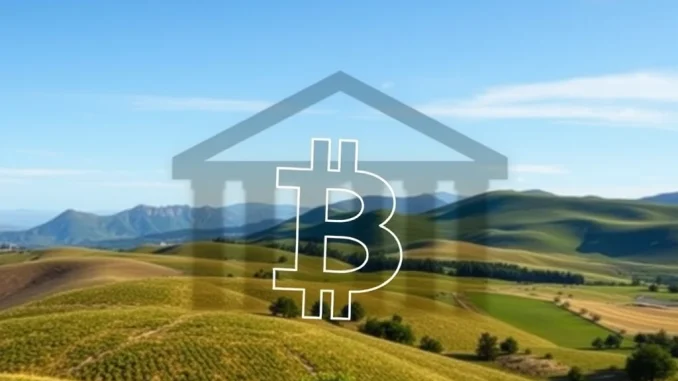
In a move that has captured significant attention across financial and political circles, Donald Trump Jr., son of former U.S. President Donald Trump, has reportedly stated his family embraced Bitcoin and the wider Crypto market after facing exclusion from traditional banking services. This revelation brings the concept of Debanking into sharp focus, highlighting the growing intersection between political events and the adoption of Cryptocurrency.
Why Would a Family Turn to Bitcoin After Debanking?
The term “debanking” refers to the process where banks or financial institutions close customer accounts or deny services. While reasons can vary, ranging from compliance issues to political pressure, the consequence is a loss of access to essential financial infrastructure. For individuals or entities facing such challenges, traditional financial avenues become restricted or unavailable.
This is where decentralized alternatives like Bitcoin and other forms of Cryptocurrency come into play. Unlike traditional banks, these digital assets operate on decentralized networks, meaning no single entity has absolute control. This characteristic offers a potential lifeline for those shut out of conventional systems.
Reasons someone might turn to crypto after debanking:
- Circumvention of Central Control: Crypto networks are censorship-resistant. Transactions occur peer-to-peer without requiring bank approval.
- Access to Funds: Allows individuals to hold, send, and receive value digitally without needing a bank account.
- Global Accessibility: Crypto is accessible to anyone with an internet connection, regardless of their banking status or location.
Donald Trump Jr. and the Family’s Reported Move
According to a report by @thecryptobasic on X, citing a CNBC interview, Donald Trump Jr. indicated that his family decided to go “all in” on Bitcoin and crypto subsequent to being removed from traditional banking services. This statement, if accurate, is significant.
It positions a highly visible American family as users of Cryptocurrency not just for investment, but as a necessary alternative due to issues with the established financial system. This public endorsement, born out of perceived necessity, could influence public perception and accelerate mainstream interest in crypto as a viable financial tool beyond speculation.
Understanding the Implications of High-Profile Crypto Adoption
When figures like Donald Trump Jr. discuss their use of Crypto, it brings the asset class into conversations it might not otherwise reach. This increased visibility can have several effects:
- Increased Awareness: More people learn about Bitcoin and Cryptocurrency.
- Normalization: Using crypto moves from being seen as niche or suspicious to a potentially normal response to financial challenges like Debanking.
- Potential for Further Adoption: As awareness and normalization grow, more individuals and businesses might explore using crypto.
However, it’s important to note that the crypto market remains volatile and carries risks. While it offers alternatives to traditional finance, users must understand the technology, security implications, and market dynamics.
Navigating the World of Cryptocurrency After Debanking
For those who find themselves in a situation of Debanking, turning to Cryptocurrency can seem like a straightforward solution. However, navigating this space requires care.
Considerations include:
- Choosing reputable exchanges or wallets.
- Understanding how to secure private keys.
- Being aware of regulatory developments in their jurisdiction.
- Recognizing the price volatility of assets like Bitcoin.
The reported experience of Donald Trump Jr.‘s family underscores a critical point: issues with traditional financial access can push individuals towards decentralized alternatives. Whether this leads to widespread adoption depends on many factors, including regulatory clarity, technological advancements, and broader public understanding.
Conclusion: A Turning Point for Bitcoin and Debanking?
The statement attributed to Donald Trump Jr. about his family’s reliance on Bitcoin and Cryptocurrency following Debanking highlights a significant trend. As traditional financial systems face scrutiny and individuals encounter access issues, decentralized options gain appeal. This event serves as a public example of crypto potentially functioning as a necessary alternative, moving beyond just an investment asset to a tool for financial inclusion when conventional doors close. It adds another layer to the ongoing global conversation about the future of finance and the role of Bitcoin within it.



